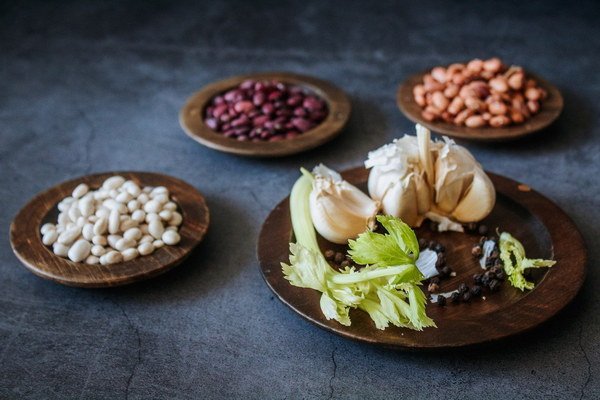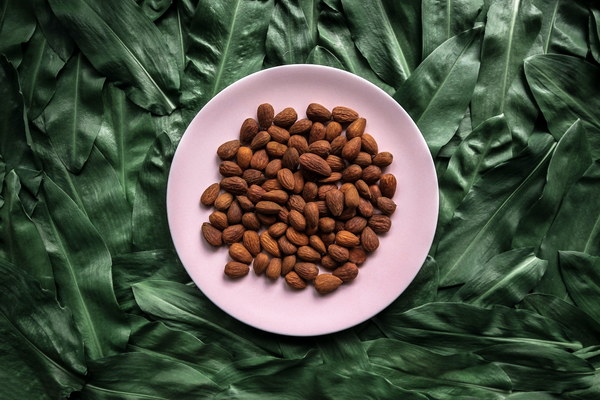Effective Medications for Nourishing Yin Soothing Liver and Clearing Lung Heat A Comprehensive Guide
Introduction:
In traditional Chinese medicine, the concept of Yin and Yang imbalance plays a significant role in the development of various health issues. One such condition is the combination of nourishing Yin, soothing Liver, and clearing Lung heat. This article aims to provide a comprehensive guide on the most effective medications for this condition, based on the principles of traditional Chinese medicine.
1. Introduction to Nourishing Yin, Soothing Liver, and Clearing Lung Heat:
Nourishing Yin, Soothing Liver, and Clearing Lung Heat refers to a set of symptoms where there is an imbalance in the Yin energy, leading to heat in the Liver and Lung. This condition can manifest as symptoms such as dry throat, irritability, dizziness, chest tightness, and difficulty breathing. To address these symptoms, it is essential to nourish Yin, soothe the Liver, and clear Lung heat.
2. Medications for Nourishing Yin:
To nourish Yin, herbal formulas and supplements are commonly used in traditional Chinese medicine. Here are some of the most effective medications:
a) Rehmannia (Shu Di Huang):
Rehmannia is a well-known herb used to nourish Yin and blood. It helps alleviate symptoms such as dry throat, night sweats, and irritability. Rehmannia is often combined with other herbs like Angelica sinensis (Dang Gui) and Alisma orientale (Ze Xie) for enhanced efficacy.
b) Peony Root (Bai Shao):
Peony root is another valuable herb used to nourish Yin and calm the Liver. It is effective in alleviating symptoms like irritability, dizziness, and insomnia. Peony root can be combined with other herbs like Scutellaria baicalensis (Huang Qin) and Bupleurum chinense (Chai Hu) for better results.
3. Medications for Soothing Liver:
To soothe the Liver, herbs that calm the Liver and relieve stress are used. Here are some effective medications:
a) Bupleurum chinense (Chai Hu):
Bupleurum chinense is a versatile herb that helps soothe the Liver, relieve stress, and improve mood. It is commonly used in formulas to treat irritability, dizziness, and chest tightness. Bupleurum chinense can be combined with other herbs like Scutellaria baicalensis (Huang Qin) and Gardenia jasminoides (Zhi Zi) for better outcomes.
b) Gardenia jasminoides (Zhi Zi):
Gardenia jasminoides is a herb known for its ability to cool the Liver and clear heat. It is effective in alleviating symptoms such as irritability, dizziness, and headache. Gardenia jasminoides can be combined with other herbs like Bupleurum chinense (Chai Hu) and Peony Root (Bai Shao) for enhanced efficacy.
4. Medications for Clearing Lung Heat:
To clear Lung heat, herbs that cool the Lung and relieve heat symptoms are used. Here are some effective medications:
a) Scutellaria baicalensis (Huang Qin):
Scutellaria baicalensis is a well-known herb used to clear heat and cool the body. It is effective in treating symptoms such as dry throat, cough with phlegm, and chest tightness. Scutellaria baicalensis can be combined with other herbs like Alisma orientale (Ze Xie) and Trichosanthes kirilowii (Xuan Shen) for better results.
b) Trichosanthes kirilowii (Xuan Shen):

Trichosanthes kirilowii is a herb known for its ability to cool the Lung and nourish Yin. It is effective in alleviating symptoms such as dry throat, cough with phlegm, and irritability. Trichosanthes kirilowii can be combined with other herbs like Scutellaria baicalensis (Huang Qin) and Rehmannia (Shu Di Huang) for enhanced efficacy.
Conclusion:
Nourishing Yin, Soothing Liver, and Clearing Lung Heat is a common condition in traditional Chinese medicine. By using the right medications, such as Rehmannia (Shu Di Huang), Peony Root (Bai Shao), Bupleurum chinense (Chai Hu), Gardenia jasminoides (Zhi Zi), Scutellaria baicalensis (Huang Qin), and Trichosanthes kirilowii (Xuan Shen), it is possible to effectively alleviate the symptoms associated with this condition. It is always advisable to consult with a qualified TCM practitioner before starting any treatment regimen.








